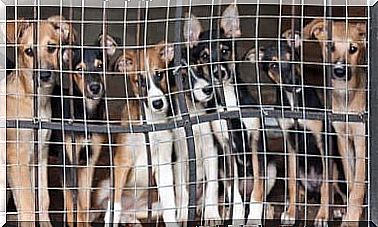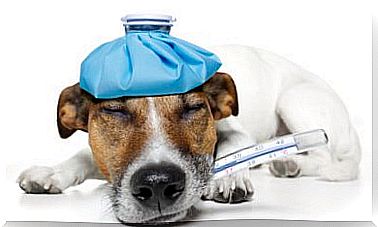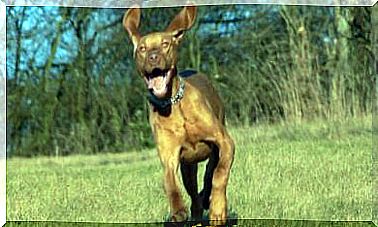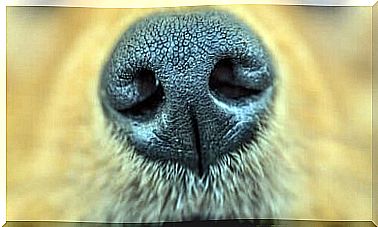Breathing Problems In Dogs: Tips For Resolving Them
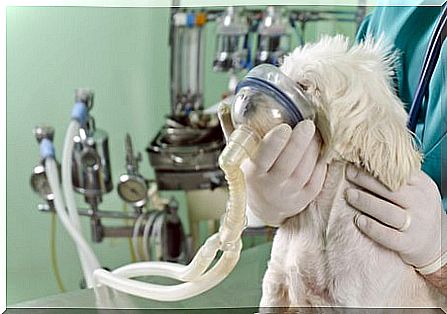
There are many breeds of dogs that have difficulty breathing due to genetic problems or characteristics. Even so, other breeds are not free from respiratory problems. Therefore, we must be prepared to help our pets. Knowing the causes and how to act will be very important if we are to do this.
What are the most common respiratory problems in dogs
There are different causes that can influence respiratory problems in dogs. Each of the conditions will be related to one of these causes. The four main ones are:
- bacterial infections
- viral infections
- fungal infections
- Allergies
The most common respiratory problems in dogs are usually caused by bacterial infections. However, we should not underestimate the symptoms and go for treatment.
After all, it is always possible that something more serious is happening to our pet. The most common symptoms of respiratory illnesses in dogs are:
Cough
It can arise at any time and in any race. Although it is not always related to something serious, it is worth paying attention to the symptom.
A cough can sometimes be just a small problem in the throat. However, at other times it may be a symptom of a more serious illness.
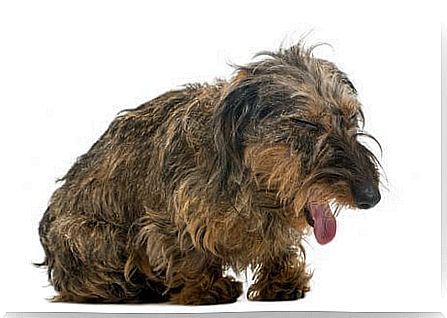
To identify the severity, we must take into account the severity of the symptom. If the animal spends more than a day coughing non-stop, it is better to go to the vet without delay.
After all, it could indicate that there is a more serious problem with our pet.
sneezing
While a sneeze may not seem like much of a concern, you should be aware of this symptom.
Sometimes, sneezing can be caused by obstruction of the nasal passages and can cause bleeding.
If you think your dog sneezes a lot more than usual, take him to the vet. Especially if the animal’s sneeze is very strong.
loss of appetite
Although a breathing problem is not connected to the stomach, it will make your pet feel unwell.
As a result, he will possibly be very tired and may even completely lose the desire to eat.
You will notice that he will get weaker. Plus, not only will he lose his appetite, he won’t want to go out or play.
If this situation persists for more than a day, don’t delay going to the vet. Remember that, on many occasions, the speed with which you act can save your pet’s life.
Mucus and runny nose
As a general rule, when there are respiratory problems in dogs, both symptoms occur together. However, there are exceptions.
Fast or wheezing and excess mucus are, without a doubt, clear signs that something is not going well in your pet’s respiratory system.

These are some of the most common symptoms. Although there may be some others, such as whistling while breathing, depression or lethargy.
You already know you need to watch your pet. So remember to act quickly when you notice any changes in your best friend’s behavior.
The most recurrent respiratory problems in dogs
- Cold. This is the most common, but we shouldn’t assume it isn’t dangerous. After all, a bad cold can bring bigger problems.
- Kennel cough. It is characterized by a dry cough. Usually, the contagion occurs in places without proper hygiene and where there are other dogs. This disease is extremely contagious. So keep an eye out for dogs that your pet often encounters in the park, walking around or elsewhere.
- Distemper. This is one of the most known and most dangerous respiratory conditions. It usually occurs in dogs that have not been vaccinated and is very easy to spread through urine or feces, as well as breathing.
- Asthma. Asthma is usually caused by a genetic problem, a family inheritance. It usually occurs when the dog has an allergy and this causes the bronchi to close. If not treated in time and correctly, it will cause your pet’s death due to suffocation.
- Pneumonia. Caused by fungi, it leads to inflammation of the lungs and airways. This will cause shortness of breath, coughing and other symptoms mentioned above. So if symptoms last longer than a few hours, don’t hesitate to visit your veterinarian.
- Tonsillitis. Although we know this respiratory disease as a human, it can also affect dogs. However, it tends to be the least serious among the diseases mentioned because it can be reversed with medication.
Acting fast is the best prevention
These are the most well-known respiratory problems in dogs that can affect your pet.
Furthermore, it is noteworthy that such problems can occur regardless of the dog’s age or breed.
So, remember that vaccinations and regular visits to the vet can avoid many of these risks to your pet’s well being.


